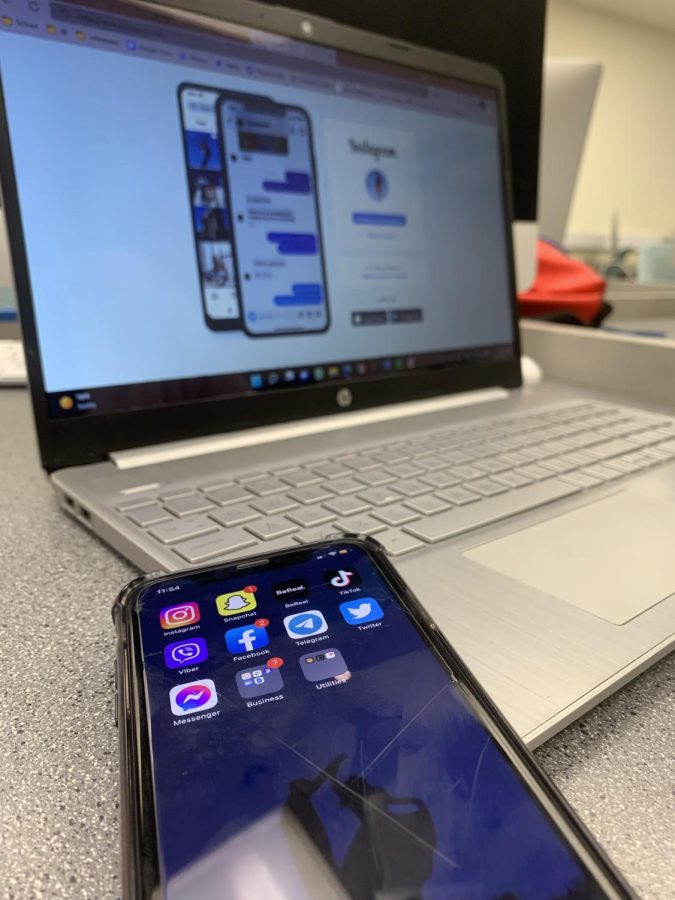How social media affects the mental health of Gen Z college students
We usually hear how social media affects health negatively, but what exactly is going on?
Social media has found its way into almost every aspect of our everyday lives, almost like a drug we cannot live without. (Photo by Jonathan Plazola)
Many young adults, more specifically Generation Z, have had an issue on their hands for a while. The way we’ve used social media has affected the mental health of many in our age range, but the way we use social media can actually improve mental health without having to stay off of social media.
We can limit our social media use by exercising, starting habits to build healthy sleep patterns, doing an outdoor activity of our interest, listening to music, or even building some new skills all by ourselves or with a friend. I think our social media feeds can be replaced with healthy, positive, uplifting and encouraging pages and posts.
The negative mental side effects of social media include comparison, anxiety, negative self-talk, fear of missing out, craving for dopamine rushes and tying our validation to our social currency.
Social currency is how many likes, comments, and shares our posts get, no matter which platform.
In a June 2017 TedTalk called, “Is Social Media Hurting Your Mental Health?,” speaker Bailey Parnell discussed the pros and cons to how social media affects our mental health and what we can do to experience positive results by making small changes. First, she addressed the problem.
Best Colleges published an article in May 2022 written by Anne Dennon titled, “Social Media Changes How Students View Mental Health.” In it, Dennon shares a study conducted by the Pew Research Center that shows how 90% of adults in the age range of 18- 29 are on social media: 76% of them used Instagram, 75% use Snapchat, and 55% use TikTok prior to the pandemic.
Most of the adults in the study were found to log on multiple times every day. In that same article there was another statistic that shared how young adults spent around an hour or two on social media before the pandemic, and have been using social media now at around three to four hours as of May 2022.
In the TedTalk video, Parnell brings up a study conducted by a group of Canadian universities that discovered that seven out of 10 students would get rid of their social networking accounts if it were not for the fear of being left out of the loop.
“We struggle with insecurity because we compare our behind-the-scenes with everyone else’s highlight reels,” Parnell said.
When I heard this quote, I immediately related to it. There was a point in my life when I had deleted Instagram for over four years because of the constant lie to have my authentic life be as “good” as everyone else’s highlight reel. My personal peak of negative thoughts, comparison and doubt is when I decided to give it up entirely and delete it.
According to the National Library of Medicine, the high use of social media has been shown to worsen feelings of low self-esteem, loneliness and stress, while increasing rates of depression, anxiety, substance misuse, and suicidality.
The pandemic certainly didn’t help with that, as the use of social media rose as students’ use of the internet was a necessity for educational and social purposes during the lockdowns.
Parnell talked about recognizing the problem and auditing our social media diet. What we digest affects how we think and feel. That also means asking ourselves did all of that time scrolling make me feel better or worse? How many times do I check likes? Why am I responding that way to that photo?
She ended her ideas of solutions by challenging the audience to create a better online experience by unfollowing and purging things that disturb inner peace and how we should model good behavior that can be used for good by showing positivity and encouragement for not only ourselves but to others around us.













Bailey Parnell • Nov 9, 2022 at 8:21 am
Thanks for sharing!